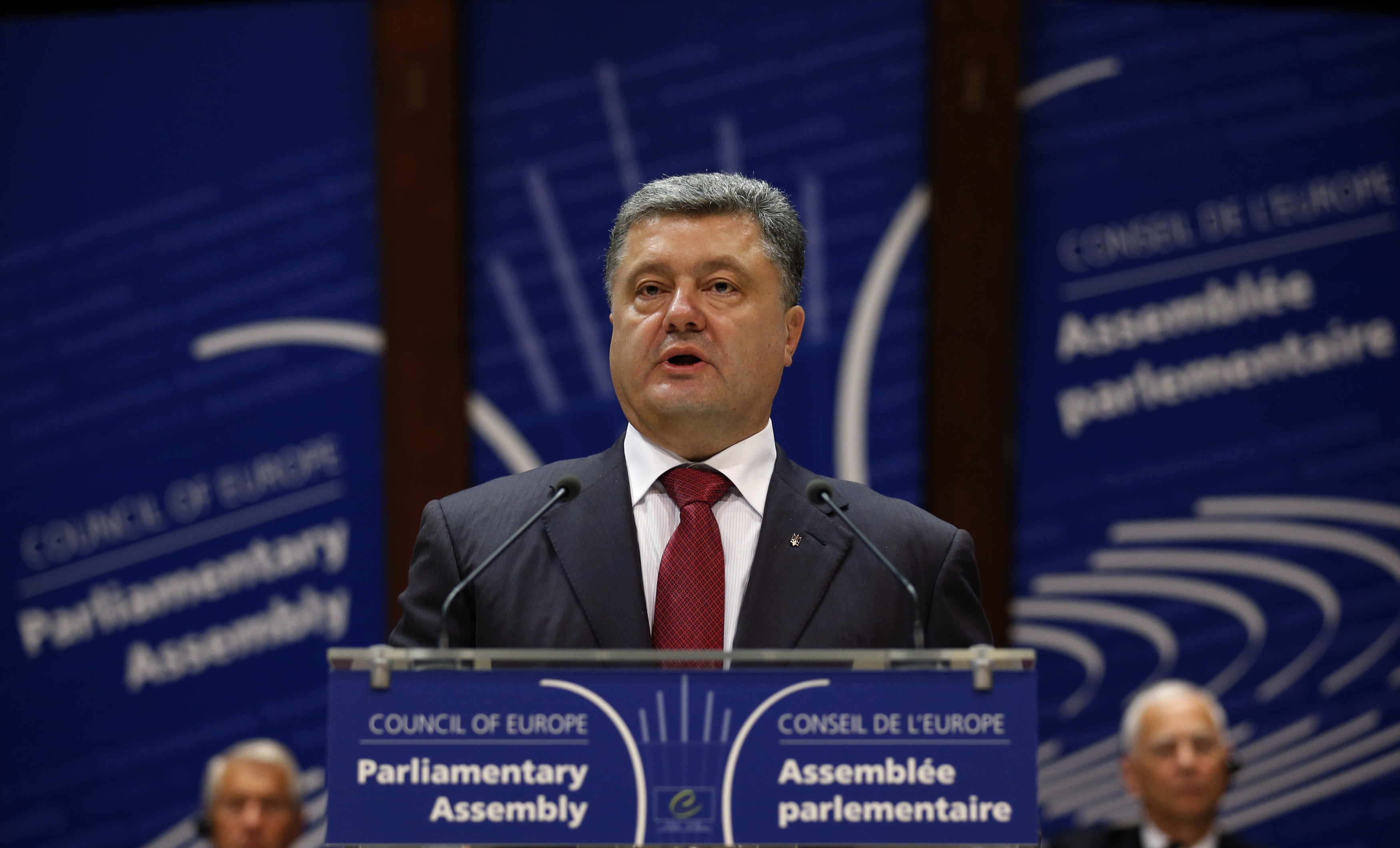Ukraine's new Western-backed leader said on Thursday he was ready to make a peace deal with Russian President Vladimir Putin that could end a separatist insurgency convulsing his country.
President Petro Poroshenko's decision to extend an olive branch to the Russian strongman came just a day before he signs the final chapters of a historic EU agreement that nudges his country toward eventual membership and pulls it firmly out of Moscow's reach.
The EU accord lies at the heart of a conflict on the eastern edge of Europe that pits the Kremlin against Western powers and ethnic Russians against Ukrainian speakers in the splintered but strategic nation of 46 million.
The West is currently scrambling to save a temporary ceasefire and nascent peace talks that pro-Russian militias that control large swathes of industrial east agreed to at the start of the week.
Poroshenko on Thursday pushed back the expiry of the truce -- broken on repeated occasions but still having succeeded in tempering the worst of the violence in the Russified eastern rustbelt -- for a few hours until Friday at 1900 GMT.
Kiev and separatist commanders have also set up a third round of indirect negotiations in the eastern hub of Donetsk that could agree another extension.
"I am ready to make peace with anybody," Poroshenko said in an interview aired late Thursday by CNN.
"I hate the idea of not to use the last opportunity to bring peace to the region," the 48-year-old chocolate baron added in English.
Poroshenko observed that "sometimes the position of Mr Putin is very pragmatic. Sometimes it is very emotional. I try to find the time when he is more pragmatic than emotional".
The Kremlin for its part said Putin assured German Chancellor Angela Merkel that he fully backed the resumption of meaningful dialogue between the warring sides.
The east witnessed sporadic fighting throughout the day Thursday that included a rebel attack on an irregular troops unit stationed in the heart of Donetsk.
The National Guard said none of its personnel had been killed or wounded. The fighting died down after a few hours and the two sides launched negotiations that stretched deep into the night.
Sweeping sanctions
The 11-week insurgency has killed more than 435 people and shattered the delicate system of trust that developed between Moscow and the West since the Cold War.
Putin is strongly suspected of orchestrating the Ukrainian uprising after having seized its Crimea peninsula in reprisal for the February ouster in Kiev of a Moscow-backed president.
The Kremlin chief denies exerting control over the fighters and is yet to address in public reports from Kiev and Washington of rocket launchers and even tanks crossing the Russian border into the conflict zone.
US Secretary of State John Kerry stressed in Paris that "it is critical for Russia to show in the next hours, literally, that they are moving to help disarm the separatists, to encourage them to disarm, to call on them to lay down their weapons and to begin to become part of a legitimate process".
Kerry added that sanctions would be also discussed by EU leaders after they sign the Association Agreement with Ukraine that the old regime rejected at what proved to be its own cost.
The punitive measures would target Russia's financial and defence sectors at a time when its export-dependent economy is on the verge of slipping into another recession.
But the US State Department later played down the link between Kerry's comments and the looming sanctions threat.
"The secretary was not outlining specific timing for additional sanctions but underscoring... that this needs to happen quickly, including partly because of the ceasefire expiring tomorrow," spokeswoman Marie Harf told reporters.
Rights to regions
Poroshenko's Western allies have long urged Kiev to amend Ukraine's basic law and devolve the central authorities' extensive controls over regional affairs.
Washington views such a system as more efficient. But it also hopes that it may appease local leaders and Russian-speaking voters enough to suspend their sovereignty drive.
Russia counters that only an outright switch to a federal system in which regions can adopt their own foreign trade policies could work in a country as culturally divided as Ukraine.
Poroshenko on Thursday submitted to parliament constitutional changes that stop well short of meeting the Kremlin's demands.
His proposal would enshrine the use of Russian in independence-minded regions and let local legislatures nominate regional governors instead of having them named directly by the president.
But analysts at the Eurasia Group political risk consultancy said there remained "an unbridgeable gap" between what Russia wanted and what Poroshenko was willing to cede.






















































